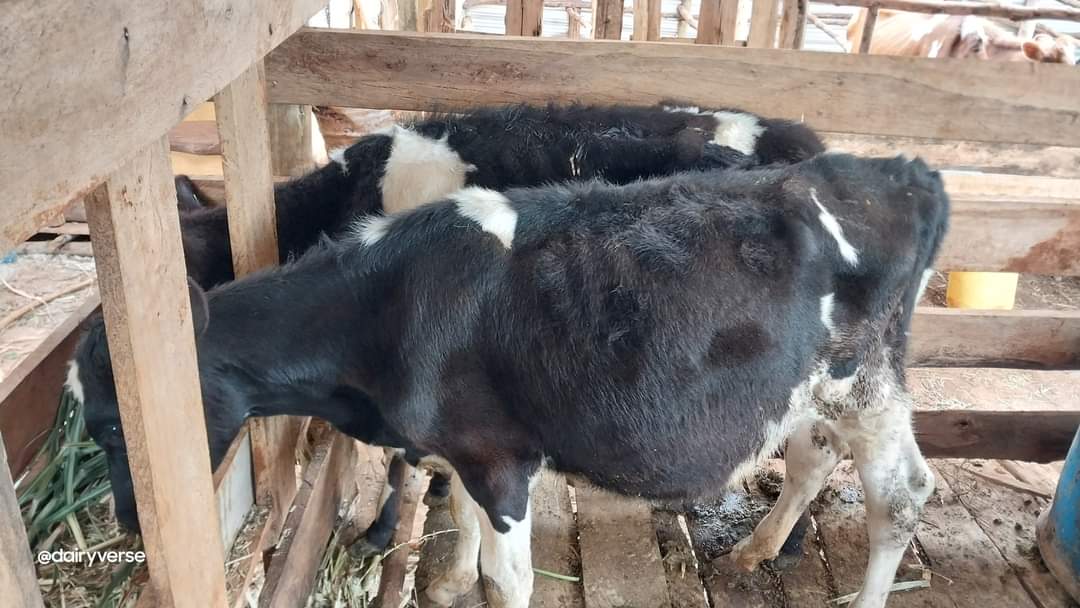Address
304 North Cardinal
St. Dorchester Center, MA 02124
Work Hours
Monday to Friday: 7AM - 7PM
Weekend: 10AM - 5PM
Address
304 North Cardinal
St. Dorchester Center, MA 02124
Work Hours
Monday to Friday: 7AM - 7PM
Weekend: 10AM - 5PM
A big stomach (or enlarged abdomen) in calves can be due to various factors, some of which are normal and others that may indicate health issues. Here are some common reasons and their potential effects:

A big stomach (or enlarged abdomen) in calves can be due to various factors, some of which are normal and others that may indicate health issues. Here are some common reasons and their potential effects:
Reason: When young calves start to consume solid feed (forage and grains) in addition to milk, their rumen (the largest stomach compartment in adult cattle) begins to develop. This often results in a noticeable bulge on the left side of the abdomen as the rumen grows.
Effect: This is a healthy and normal process in dairy calves, necessary for them to transition from a milk-based diet to solid feed. As the rumen matures, calves become more efficient at digesting fibrous plant material, which is crucial for dairy productivity later on.
Reason: Bloat occurs when there is an excessive buildup of gas in the rumen. It can be caused by improper feeding, sudden diet changes, or consuming excessive amounts of lush, green forage. Bloat may also result from certain high-protein feeds, which increase gas production during digestion.
Effect: Bloat can be dangerous. It can lead to respiratory issues due to pressure on the lungs and can potentially be fatal if not addressed quickly. Symptoms include a visibly distended abdomen, especially on the left side, discomfort, and restlessness. Immediate veterinary attention is often required to relieve the gas.
Reason: Feeding calves poor-quality forage or indigestible materials can cause an accumulation in the rumen, which may lead to an enlarged abdomen and a condition called “hay belly.”

Effect: This can impair the calf’s nutrient absorption, slow growth, and weaken immune function, as the rumen fills with undigested material rather than high-quality nutrients needed for development. Over time, this may lead to stunted growth and lower milk production in the future.
Reason: Worms and other parasites can infect the digestive tract, causing bloating and a distended abdomen. This is common in calves if they graze on contaminated pastures or are exposed to unsanitary conditions.
Effect: Parasitic infections can lead to malnutrition, poor growth, diarrhea, and a weakened immune system. Regular deworming and sanitation are essential for preventing parasite-related abdominal enlargement.
Reason: In rare cases, a big stomach can be due to fluid retention, which may be a symptom of liver or heart problems. This causes an abnormal buildup of fluid in the abdominal cavity.
Effect: Ascites can lead to difficulty breathing, poor growth, and general ill health. This condition requires veterinary diagnosis and treatment, as it can signify underlying health issues.
Reason: Feeding excessive milk or milk replacer can cause the calf’s stomach to distend. Young calves may drink more than they need, especially if milk is provided in large quantities or at irregular intervals.
Effect: Overfeeding can lead to digestive upset, diarrhea, and increased risk of bloat or other digestive disorders. A consistent feeding schedule with appropriate amounts can help avoid this issue.
For any questions related to dairy farming, feel free to reach out to our team on Call/WhatsApp:- 0743 699 774.